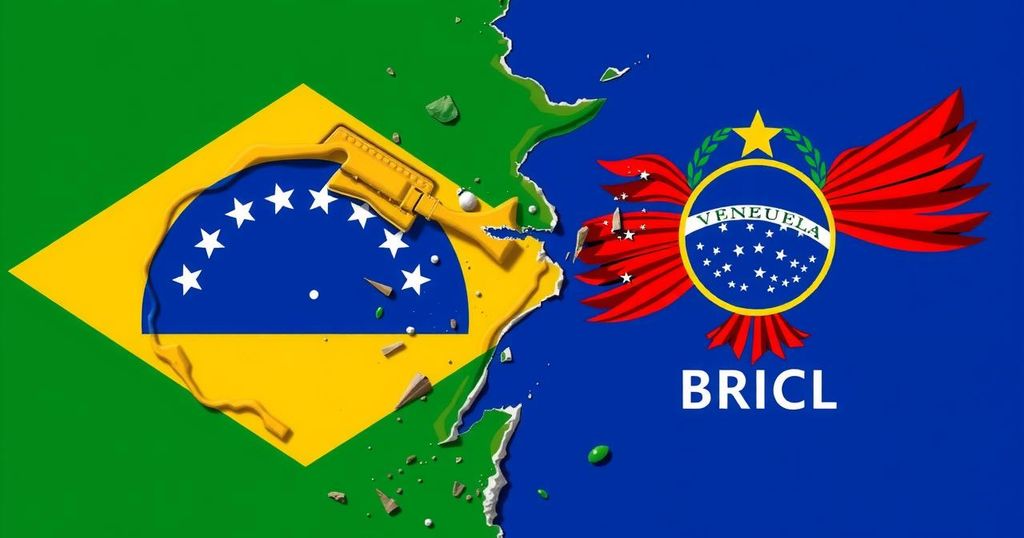Venezuela has recalled its ambassador to Brazil after Brazil vetoed its application to join BRICS, provoking criticism from Caracas. The situation has been exacerbated by disputed elections in Venezuela in July 2024, which Brazil and several other countries have yet to recognize. Venezuelan officials condemned the actions of Brazilian diplomats, particularly targeting former foreign minister Celso Amorim for his comments on electoral transparency.
On October 30, 2024, Venezuela’s Foreign Ministry announced the recall of its ambassador to Brazil, Manuel Vadell, in response to Brazil’s veto of Venezuela’s application to join the BRICS group of emerging economies. This decision, taken by the leftist administration of President Luiz Inacio Lula da Silva, provoked strong discontent within the Venezuelan government, led by socialist leader Nicolas Maduro, who has historically viewed Brazil as a key ally. The Venezuelan government called for consultations with Ambassador Vadell and summoned Brazil’s charge d’affaires in Caracas to express its disapproval of the veto. In its official statement, Venezuela criticized the actions of Brazilian diplomats, arguing that they contradicted the consensus of other BRICS members and labeled these actions as obstructive. Tensions between Venezuela and several Latin American nations have escalated following the controversial elections held in Venezuela on July 18, 2024, where Maduro’s government declared a victory without providing clear electoral results, leading to widespread claims from the opposition that their candidate, Edmundo Gonzalez Urrutia, triumphed in a landslide. Brazil has refrained from recognizing Maduro’s re-election pending detailed results and has aligned itself with the international community, including the United States, that supports the opposition’s claims. Though Lula had previously maintained close ties with Hugo Chavez, Maduro’s predecessor, he has openly criticized Maduro’s government as an “authoritarian regime.” In particular, the Venezuelan administration took issue with comments made by former Brazilian Foreign Minister Celso Amorim, asserting that Brazil’s veto was due to concerns regarding electoral transparency, which Vicente de Maduro’s government vehemently denies. Venezuelan officials characterized Amorim as a “messenger of North American imperialism” and prompted a motion in the Venezuelan parliament to declare him persona non grata.
The political relationship between Venezuela and Brazil has experienced significant fluctuations, often reflecting the broader geopolitical dynamics between leftist governments in Latin America and the United States. The BRICS (an acronym for Brazil, Russia, India, China, and South Africa) serves as a platform for emerging economies to enhance their global influence. Venezuela’s desire to join BRICS symbolizes its pursuit of international recognition and support as it grapples with economic crises and political instability exacerbated by external pressures. The recent elections in Venezuela have heightened international scrutiny, with Brazil, under Lula’s leadership, exhibiting a cautious stance towards Maduro’s regime, reminiscent of past alliances during Chavez’s administration.
The recall of Venezuela’s ambassador from Brazil following the veto of its BRICS membership application underscores the deteriorating relations between the two nations. This incident highlights the intersection of domestic electoral controversies and broader geopolitical affiliations, particularly in the context of Venezuela’s ongoing struggle for legitimacy on the international stage. Lula’s administration’s repositioning suggests a shift from previous alignments, potentially influencing future diplomatic interactions within Latin America.
Original Source: www.thehindu.com






